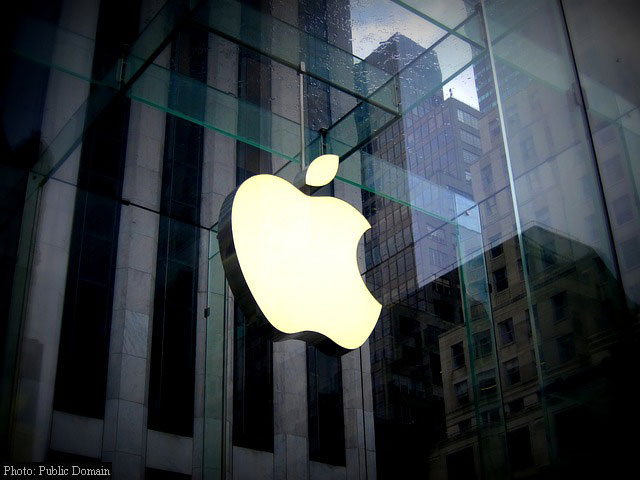
Apple’s (NASDAQ:AAPL) stock experienced a roughly 3% dip on Thursday, adding to the previous day’s 4% slide, amid emerging reports hinting at a potential ban on iPhone usage among Chinese government employees.
These yet-to-be-officially-confirmed limitations spark worries that Apple’s offerings might become collateral damage in the escalating geopolitical strains between the U.S. and China.
Encompassing Hong Kong and Taiwan, Greater China stands as Apple’s third-largest revenue source, constituting 18% of the tech behemoth’s impressive $394 billion total earnings. Additionally, it’s the primary hub where the lion’s share of Apple devices come to life. The tech titan, however, has refrained from offering any comments.
In a move that has caught global attention, China has imposed a directive forbidding officials within its central government agencies from using iPhones for work purposes or even carrying them onto office premises, as reported by The Wall Street Journal on Wednesday. The extent of this ban’s enforcement remains indeterminate. According to a subsequent report by Bloomberg News on Thursday, this ban could potentially extend its reach to encompass state-owned enterprises and agencies backed by the government.
In the meantime, Forbes highlights that this manoeuvre partially represents an effort to purge foreign technology from Chinese government agencies and corporations, mirroring how the U.S. and Europe have curtailed Huawei’s participation in their telecommunications infrastructures.
Another element at play here is the imposition of U.S. constraints on the sale of advanced computer chips to China, as well as restrictions on chip-manufacturing equipment supplied by the Dutch industry leader, ASML. This company’s photolithography machines are instrumental in the creation of intricate computer chips.
Another rising apprehension for the Chinese authorities is Apple’s escalating dominance over local smartphone manufacturers, seizing a disproportionately large share of China’s internal market value. While other vendors may be selling more units, Apple’s high-ticket pricing strategy ensures that it reaps a larger profit. This scenario represents a classic case of fewer sales but greater revenue, thanks to Apple’s premium pricing model.
A ban encompassing all government employees might shrink iPhone sales in China by up to 5%, as per Bernstein analyst Toni Sacconaghi’s Thursday note. However, the true peril for Apple, the analyst notes- may not lie in the ban itself but in the potential message it sends to the general public – a subtle directive suggesting that they should favor electronics manufactured by Chinese companies. This scenario could pose a far greater challenge to Apple’s market presence in China.
“Perhaps more importantly, restricted use of iPhones among government employees could negatively impact sales among consumers (related family members; general populace) and could be part of a broader move by the Chinese government to promote usage of domestic technology,” Sacconaghi wrote [via CNBC].
The main challenge facing Cupertino amidst its fraying ties with China lies in the whopping $74.2 billion revenue generated primarily from iPhone sales in the region termed as “Greater China” during the fiscal year 2022. This geopolitical territory encompasses mainland China, Hong Kong, Macau, Taiwan, and Tibet. Notably, this figure marks a significant increase from the $68.4 billion recorded in late Sept. 2021.
Dan Niles, a portfolio manager at Satori Fund, revealed on Thursday that he has divested his investment in Apple and is now shorting, or betting against the tech giant. His decision is grounded in the looming threat of a government-imposed iPhone ban and the intensifying rivalry with Huawei, a prominent player in the smartphone market. This strategic move underscores the potential challenges that Apple may face in the near future.
- Bulenox: Get 45% to 91% OFF ... Use Discount Code: UNO
- Risk Our Money Not Yours | Get 50% to 90% OFF ... Use Discount Code: MMBVBKSM
Disclaimer: This page contains affiliate links. If you choose to make a purchase after clicking a link, we may receive a commission at no additional cost to you. Thank you for your support!


Leave a Reply